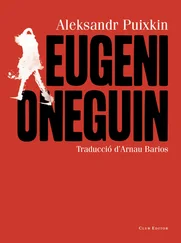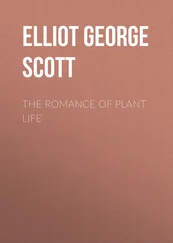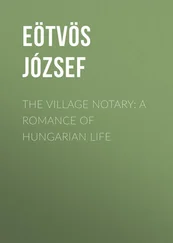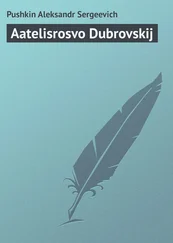Aleksandr Pushkin - Eugene Oneguine [Onegin]. A Romance of Russian Life in Verse
Здесь есть возможность читать онлайн «Aleksandr Pushkin - Eugene Oneguine [Onegin]. A Romance of Russian Life in Verse» весь текст электронной книги совершенно бесплатно (целиком полную версию без сокращений). В некоторых случаях можно слушать аудио, скачать через торрент в формате fb2 и присутствует краткое содержание. Год выпуска: 2007, Жанр: Поэзия, на английском языке. Описание произведения, (предисловие) а так же отзывы посетителей доступны на портале библиотеки ЛибКат.
- Название:Eugene Oneguine [Onegin]. A Romance of Russian Life in Verse
- Автор:
- Жанр:
- Год:2007
- ISBN:нет данных
- Рейтинг книги:4 / 5. Голосов: 1
-
Избранное:Добавить в избранное
- Отзывы:
-
Ваша оценка:
- 80
- 1
- 2
- 3
- 4
- 5
Eugene Oneguine [Onegin]. A Romance of Russian Life in Verse: краткое содержание, описание и аннотация
Предлагаем к чтению аннотацию, описание, краткое содержание или предисловие (зависит от того, что написал сам автор книги «Eugene Oneguine [Onegin]. A Romance of Russian Life in Verse»). Если вы не нашли необходимую информацию о книге — напишите в комментариях, мы постараемся отыскать её.
Eugene Oneguine [Onegin]. A Romance of Russian Life in Verse — читать онлайн бесплатно полную книгу (весь текст) целиком
Ниже представлен текст книги, разбитый по страницам. Система сохранения места последней прочитанной страницы, позволяет с удобством читать онлайн бесплатно книгу «Eugene Oneguine [Onegin]. A Romance of Russian Life in Verse», без необходимости каждый раз заново искать на чём Вы остановились. Поставьте закладку, и сможете в любой момент перейти на страницу, на которой закончили чтение.
Интервал:
Закладка:
Ah! how Tattiana was transformed,
How thoroughly her part she took!
How soon to habits she conformed
Which crushing dignity must brook!
Who would the maiden innocent
In the unmoved, magnificent
Autocrat of the drawing-room seek?
And he had made her heart beat quick!
'Twas he whom, amid nightly shades,
Whilst Morpheus his approach delays,
She mourned and to the moon would raise
The languid eye of love-sick maids,
Dreaming perchance in weal or woe
To end with him her path below.
XXVIII
To Love all ages lowly bend,
But the young unpolluted heart
His gusts should fertilize, amend,
As vernal storms the fields athwart.
Youth freshens beneath Passion's showers,
Develops and matures its powers,
And thus in season the rich field
Gay flowers and luscious fruit doth yield.
But at a later, sterile age,
The solstice of our earthly years,
Mournful Love's deadly trace appears
As storms which in chill autumn rage
And leave a marsh the fertile ground
And devastate the woods around.
XXIX
There was no doubt! Eugene, alas!
Tattiana loved as when a lad,
Both day and night he now must pass
In love-lorn meditation sad.
Careless of every social rule,
The crystals of her vestibule
He daily in his drives drew near
And like a shadow haunted her.
Enraptured was he if allowed
To swathe her shoulders in the furs,
If his hot hand encountered hers,
Or he dispersed the motley crowd
Of lackeys in her pathway grouped,
Or to pick up her kerchief stooped.
XXX
She seemed of him oblivious,
Despite the anguish of his breast,
Received him freely at her house,
At times three words to him addressed
In company, or simply bowed,
Or recognized not in the crowd.
No coquetry was there, I vouch—
Society endures not such!
Oneguine's cheek grew ashy pale,
Either she saw not or ignored;
Oneguine wasted; on my word,
Already he grew phthisical.
All to the doctors Eugene send,
And they the waters recommend.
XXXI
He went not—sooner was prepared
To write his forefathers to warn
Of his approach; but nothing cared
Tattiana—thus the sex is born.—
He obstinately will remain,
Still hopes, endeavours, though in vain.
Sickness more courage doth command
Than health, so with a trembling hand
A love epistle he doth scrawl.
Though correspondence as a rule
He used to hate—and was no fool—
Yet suffering emotional
Had rendered him an invalid;
But word for word his letter read.
All is foreseen. My secret drear
Will sound an insult in your ear.
What acrimonious scorn I trace
Depicted on your haughty face!
What do I ask? What cause assigned
That I to you reveal my mind?
To what malicious merriment,
It may be, I yield nutriment!
Meeting you in times past by chance,
Warmth I imagined in your glance,
But, knowing not the actual truth,
Restrained the impulses of youth;
Also my wretched liberty
I would not part with finally;
This separated us as well—
Lenski, unhappy victim, fell,
From everything the heart held dear
I then resolved my heart to tear;
Unknown to all, without a tie,
I thought—retirement, liberty,
Will happiness replace. My God!
How I have erred and felt the rod!
No, ever to behold your face,
To follow you in every place,
Your smiling lips, your beaming eyes,
To watch with lovers' ecstasies,
Long listen, comprehend the whole
Of your perfections in my soul,
Before you agonized to die—
This, this were true felicity!
But such is not for me. I brood
Daily of love in solitude.
My days of life approach their end,
Yet I in idleness expend
The remnant destiny concedes,
And thus each stubbornly proceeds.
I feel, allotted is my span;
But, that life longer may remain,
At morn I must assuredly
Know that thy face that day I see.
I tremble lest my humble prayer
You with stern countenance declare
The artifice of villany—
I hear your harsh, reproachful cry.
If ye but knew how dreadful 'tis
To bear love's parching agonies—
To burn, yet reason keep awake
The fever of the blood to slake—
A passionate desire to bend
And, sobbing at your feet, to blend
Entreaties, woes and prayers, confess
All that the heart would fain express—
Yet with a feigned frigidity
To arm the tongue and e'en the eye,
To be in conversation clear
And happy unto you appear.
So be it! But internal strife
I cannot longer wage concealed.
The die is cast! Thine is my life!
Into thy hands my fate I yield!
XXXII
No answer! He another sent.
Epistle second, note the third,
Remained unnoticed. Once he went
To an assembly—she appeared
Just as he entered. How severe!
She will not see, she will not hear.
Alas! she is as hard, behold,
And frosty as a Twelfth Night cold.
Oh, how her lips compressed restrain
The indignation of her heart!
A sidelong look doth Eugene dart:
Where, where, remorse, compassion, pain?
Where, where, the trace of tears? None, none!
Upon her brow sits wrath alone—
XXXIII
And it may be a secret dread
Lest the world or her lord divine
A certain little escapade
Well known unto Oneguine mine.
'Tis hopeless! Homeward doth he flee
Cursing his own stupidity,
And brooding o'er the ills he bore,
Society renounced once more.
Then in the silent cabinet
He in imagination saw
The time when Melancholy's claw
'Mid worldly pleasures chased him yet,
Caught him and by the collar took
And shut him in a lonely nook.
XXXIV
He read as vainly as before,
perusing Gibbon and Rousseau,
Manzoni, Herder and Chamfort, [88] Owing to the unstable nature of fame the names of some of the above literary worthies necessitate reference at this period in the nineteenth century. Johann Gottfried von Herder, b. 1744, d. 1803, a German philosopher, philanthropist and author, was the personal friend of Goethe and held the poet of court chaplain at Weimar. His chief work is entitled, "Ideas for a Philosophy of the History of Mankind," in 4 vols. Sebastien Roch Nicholas Chamfort, b. 1741, d. 1794, was a French novelist and dramatist of the Revolution, who contrary to his real wishes became entangled in its meshes. He exercised a considerable influence over certain of its leaders, notably Mirabeau and Sieyes. He is said to have originated the title of the celebrated tract from the pen of the latter. "What is the Tiers Etat? Nothing. What ought it to be? Everything." He ultimately experienced the common destiny in those days, was thrown into prison and though shortly afterwards released, his incarceration had such an effect upon his mind that he committed suicide. Marie Francois Xavier Bichat, b. 1771, d. 1802, a French anatomist and physiologist of eminence. His principal works are a "Traite des Membranes," "Anatomie generale appliquee a la Physiologie et a la Medecine," and "Recherches Physiologiques sur la Vie et la Mort." He died at an early age from constant exposure to noxious exhalations during his researches. Pierre Francois Tissot, b. 1768, d. 1864, a French writer of the Revolution and Empire. In 1812 he was appointed by Napoleon editor of the Gazette de France . He wrote histories of the Revolution, of Napoleon and of France. He was likewise a poet and author of a work entitled "Les trois Irlandais Conjures, ou l'ombre d'Emmet," and is believed to have edited Foy's "History of the Peninsular War." The above catalogue by its heterogeneous composition gives a fair idea of the intellectual movement in Russia from the Empress Catherine the Second downwards. It is characterized by a feverish thirst for encyclopaedic knowledge without a corresponding power of assimilation.
Madame de Stael, Bichat, Tissot:
Интервал:
Закладка:
Похожие книги на «Eugene Oneguine [Onegin]. A Romance of Russian Life in Verse»
Представляем Вашему вниманию похожие книги на «Eugene Oneguine [Onegin]. A Romance of Russian Life in Verse» списком для выбора. Мы отобрали схожую по названию и смыслу литературу в надежде предоставить читателям больше вариантов отыскать новые, интересные, ещё непрочитанные произведения.
Обсуждение, отзывы о книге «Eugene Oneguine [Onegin]. A Romance of Russian Life in Verse» и просто собственные мнения читателей. Оставьте ваши комментарии, напишите, что Вы думаете о произведении, его смысле или главных героях. Укажите что конкретно понравилось, а что нет, и почему Вы так считаете.











